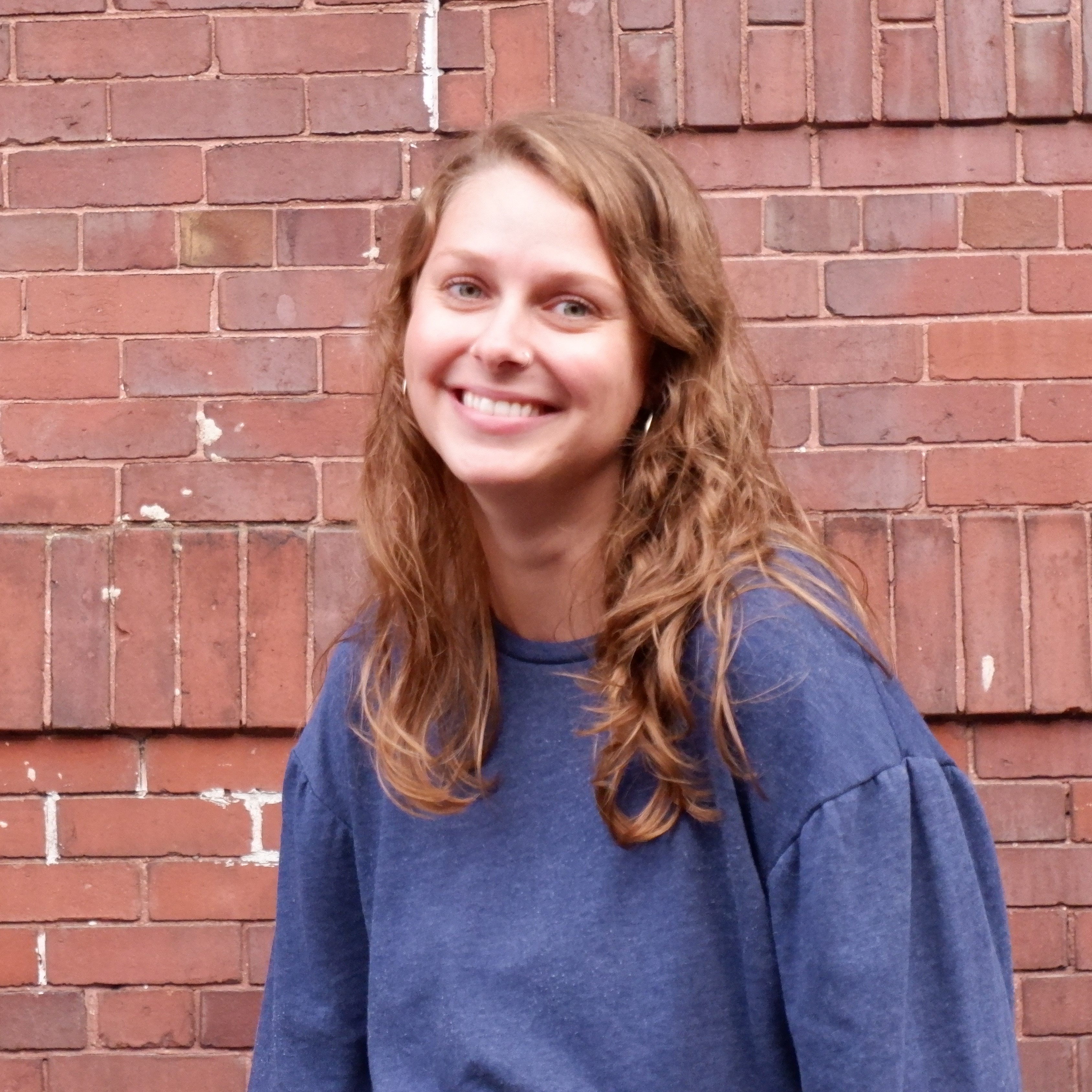
Rachel Nass, Summer 2021 Fellow,
Masters in Social Work Program, College of Liberal Arts and Social Sciences
Throughout the fellowship, I examined several questions related to food rescue efforts and the mutual aid networks spearheading them in Chicago. This primarily fell under the umbrella of the Chicago Food Sovereignty Coalition, a network of mutual aid groups that are working together to improve local food systems. Through participatory research, I explored what it takes to identify a new food rescue site and how this information can be mapped and documented in a way that supports future efforts. I was also able to observe and participate in food rescue and distribution, group meetings and discussions, and manage the logistics of cold-storage warehouse space. At the beginning of the summer, I worked on a project already underway through a collaboration between the Chicago Food Sovereignty Coalition, DePaul University and the Chicago Food Policy Action Council to identify and map food rescue and cold storage sites. The investigation into cold storage sites did not yield an appropriate location for the Chicago Food Sovereignty Coalition, so this investigation evolved into a search for warehouse spaces that could be transformed into appropriate spaces, making the mapping efforts for cold storage less of a priority by the time I engaged with the Chicago Food Sovereignty Coalition. Using the research by DePaul studwnts, CFSC were able to find temporary warehouse space, sign a lease for a permanent option for the fall, and attain enough donations to support further outreach to meet the needs for cold storage. While I initially thought this meant there would be no research for me to do, I soon realized there was still much to be learned, analyzed, and documented.
Summary of Achievements
Though I may not have been able to complete my original goal of joining the team of DePaul students conducting outreach and mapping food rescue and cold storage, I was able to participate in and learn about the processes followed by CFSC. During the fellowship, there were attempts to identify new food rescue sites, but new partnerships were not always easy to come by for a myriad of reasons. Some stores did not have the capacity or infrastructure to rescue food to donate, while some stores were already under contract to donate to another, more institutionalized program such as Feeding America or Greater Chicago Food Depository. Mapping and documentation of these attempts to partner with potential food rescue sites were one way to organize the work of mutual aid groups around outreach and to better understand the food rescue potential for the various groups in the coalition. Specifically, having this information available helped CFSC plan for future outreach as well as food rescue routes. The information may also prove valuable in showing trends across the city where food is in abundance or going to waste and visualizing the complex directions in which food donations flow. Throughout the fellowship, I was also able to visit numerous food rescue sites and see the partnerships formed between CFSC and companies and organizations. I saw how networking and community building were essential parts of the food rescue process. By participating in these food rescue efforts and showing up for scheduled bag-building for food distribution, I was able to literally get my hands dirty and spend time in conversation with many members and volunteers, learning how they came to the work and what role they play in supporting the team. I completed my goal of doing hands-on participatory research, learning all about the inner workings of the advocacy happening while also contributing many hours driving, loading, unloading, and re-packing rescued food from across the city.
Social Equity & Sustainability
This report is a brief snapshot of the work being done by the Chicago Food Sovereignty Coalition on issues of social equity and sustainability. Community members on the ground are rescuing food and redistributing it across the city every week, supporting neighbors in need of food. Eating fresh and healthy food is essential for all of us to function at our optimal levels. By making these options more accessible to community members and neighbors, CFSC advances equity of food access. There is also an important element related to sustainability in their work. During the time I helped build produce bags to distribute to families in the community, we sorted through many pallets of fresh fruits and vegetables. Any items that were not fit to eat, were diligently sorted and composted the food. This compost was just a small percentage of the many truckloads of items initially rescued throughout the week. The work of CFSC serves to provide fresh, healthy food throughout the city with the side effect of reducing food waste and contributing to environmental sustainability. CFSC also has in its very name food sovereignty as a central goal. Their food rescue efforts and mutual aid values build equity for families and neighborhoods across Chicago while reimagining what our food system can one day become.